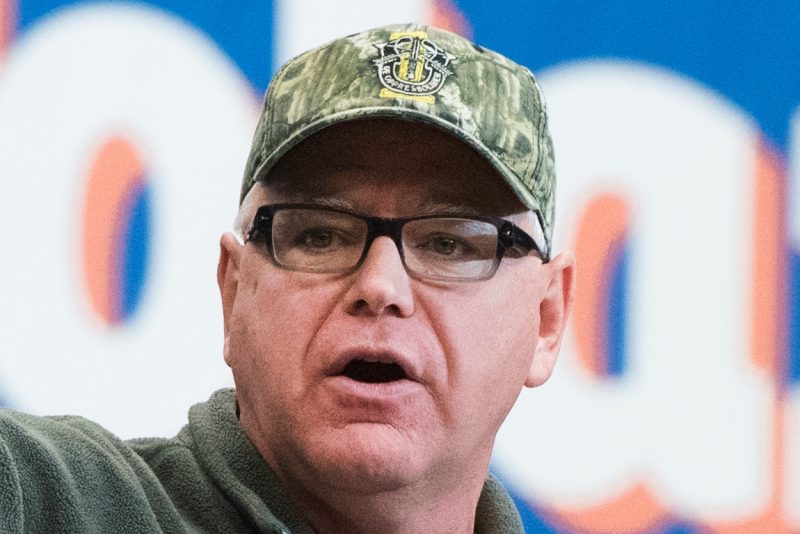In a surprising turn of events, Tim Walz, a politician who was once endorsed by the National Rifle Association (NRA), has now emerged as a vocal advocate for gun control measures. This transformation in Walz’s stance on gun control highlights the evolving landscape of politics and public opinion surrounding gun rights and regulations in the United States.
Walz, a Democrat and former member of the U.S. House of Representatives from Minnesota, had previously received the endorsement of the NRA during his congressional campaigns. The NRA is a powerful lobbying organization that has historically opposed many gun control measures and advocated for the protection of Second Amendment rights. For Walz, receiving the NRA’s endorsement was seen as a validation of his support for gun rights and his alignment with conservative values on the issue of firearms.
However, in recent years, as the debate over gun control has intensified in the wake of mass shootings and rising gun violence in the country, Walz has undergone a significant shift in his position. He has become a vocal proponent of gun control measures, including universal background checks, closing loopholes in existing gun laws, and banning assault weapons. This shift has been met with both praise and criticism from different factions within the political spectrum.
Walz’s journey from an NRA-endorsed politician to a gun control advocate reflects the changing dynamics of the gun control debate in America. As public opinion has shifted towards supporting stricter gun laws and measures to address gun violence, many politicians, including Walz, have had to adapt their positions to align with the evolving views of their constituents.
One of the factors that may have influenced Walz’s change in stance is the increasing frequency and severity of mass shootings in the country. Tragic incidents like the shootings at Sandy Hook Elementary School, Pulse nightclub, and most recently, the Marjory Stoneman Douglas High School in Parkland, Florida, have galvanized public support for stricter gun control measures and prompted politicians like Walz to reevaluate their positions on the issue.
Additionally, grassroots movements such as March for Our Lives, led by survivors of mass shootings and young activists, have helped mobilize public opinion and pressure lawmakers to take action on gun control. These movements have highlighted the urgent need for legislative reforms to prevent further tragedies and protect the safety of communities across the nation.
In conclusion, Tim Walz’s evolution from an NRA-endorsed politician to a gun control advocate exemplifies the complex and nuanced nature of the gun control debate in America. As the country grapples with the challenges of gun violence and strives to find common ground on this contentious issue, politicians like Walz play a vital role in shaping the future of gun policy and safeguarding the well-being of their constituents.
